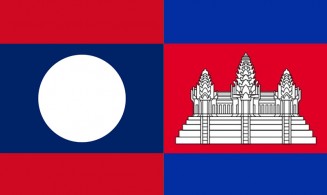

South-East Asia: Towards an ASEAN Lifelong Learning Agenda
seameo_celll_meeting.jpg

The Southeast Asian Ministers of Education Organization Regional Centre for Lifelong Learning (SEAMEO CELLL) and the UNESCO Institute for Lifelong Learning (UIL) are working together to develop strategic guidelines for the inclusion of lifelong learning perspectives into national educational policies of South-East Asian states. These strategies will relate to the United Nations Sustainable Development Goal (SDG) 4, which concerns education, and will contextualize the modus operandi by involving the Association of Southeast Asian Nations (ASEAN).
At an informative meeting titled ‘Towards an ASEAN Lifelong Learning Agenda’, held in Ho Chi Minh City, Viet Nam, on 4 and 5 October 2016, directors-general of departments in ministries of education in eleven countries in South-East Asia, together with national experts and UNESCO specialists from UIL, UNESCO Bangkok and Ha Noi, developed mechanisms of operation and implementation. The Agenda includes elements to:
- conduct a multisectoral dialogue on the promotion of lifelong learning and seek endorsement by governmental authorities;
- find evidence of higher returns on lifelong learning;
- enhance the role of local government and provide incentives for corporate
social responsibilities; - undertake analytical research to identify gaps in achieving SDG 4 to inform policy makers; and
- organize the promotion of lifelong learning at all governmental levels.
The Agenda has a number of further measures of implementation. They are to:
- develop national policies to promote lifelong learning for all as an integral part of national social and economic development and as a key component to the 2030 Agenda for Sustainable Development;
- establish coordination mechanisms at all levels by involving all stakeholders in promoting lifelong learning;
- allocate sufficient financial resources and develop mechanisms to mobilize additional funding in recognition of the benefit of lifelong learning, and
- expand the provision of learning opportunities.
In order for lifelong learning policies and programmes to stimulate effective changes, participants called upon governments to make them inclusive and gender-responsive.
The Outcome document from this meeting builds on an advocacy brief from a meeting in Ha Noi in 2013, titled “Promoting Lifelong Learning For All”. It will be brought to the attention of the Southeast Asian Ministers of Education Council Conference (SEAMEC) in May 2017. It will also be taken to the upcoming Asia-Pacific Meeting on Education 2030 (APMED2030) in November 2016, where countries of Asia and South Pacific will develop strategies for implementing SDG 4 in the regional context. Finally, it will be presented at the 6th ASEM Education Ministers’ Meeting, which is to be held in May 2017 in the Republic of Korea.










